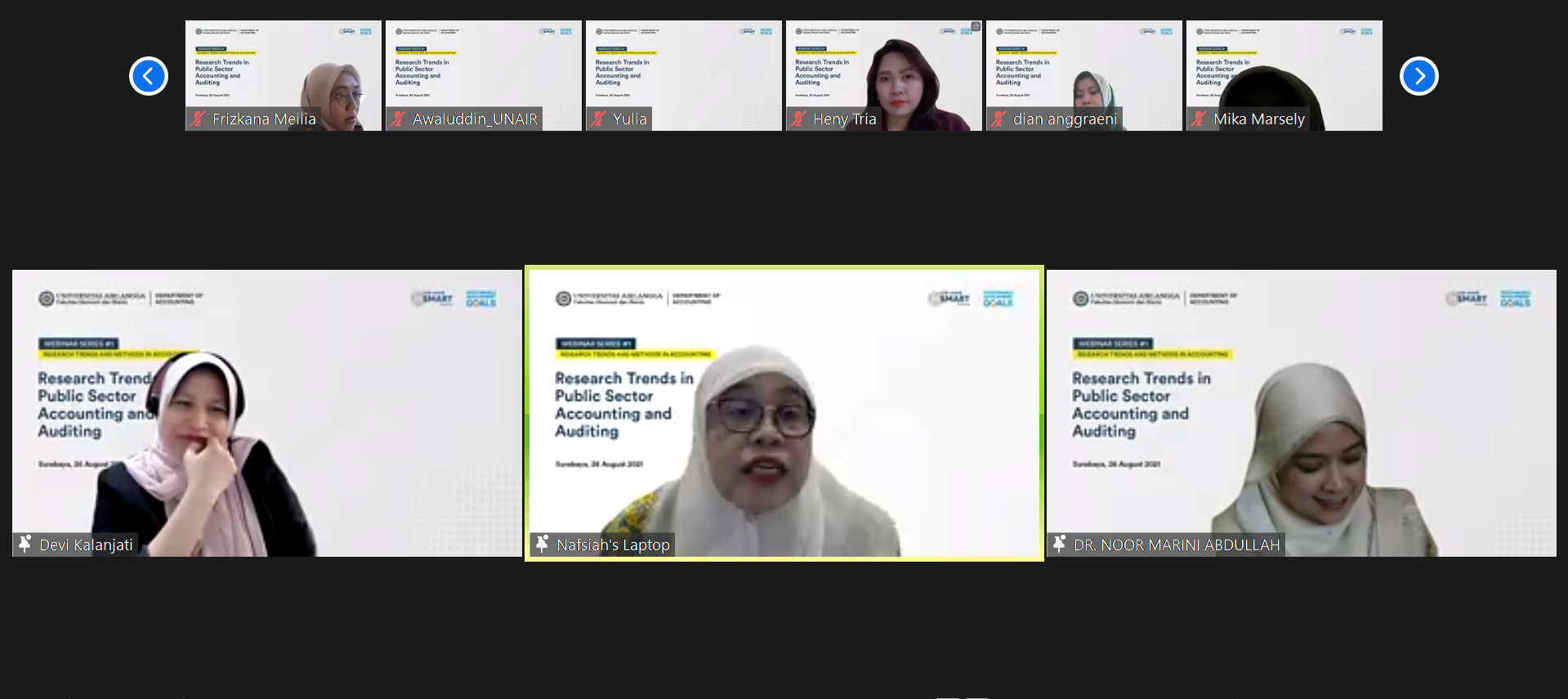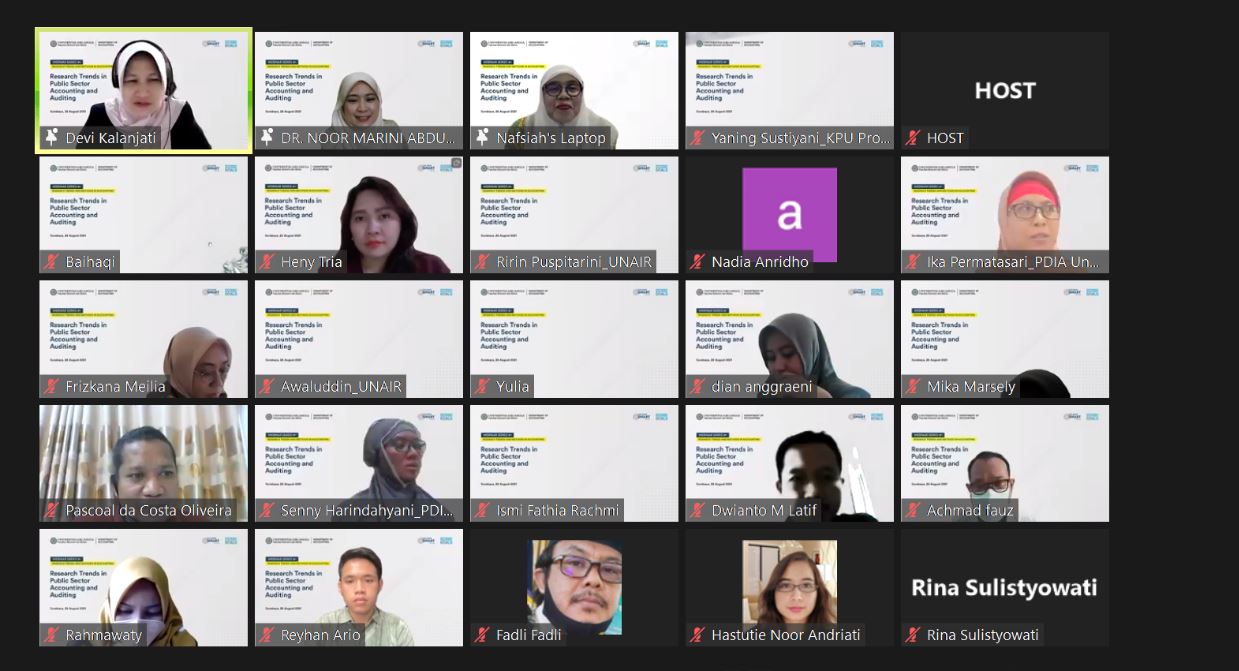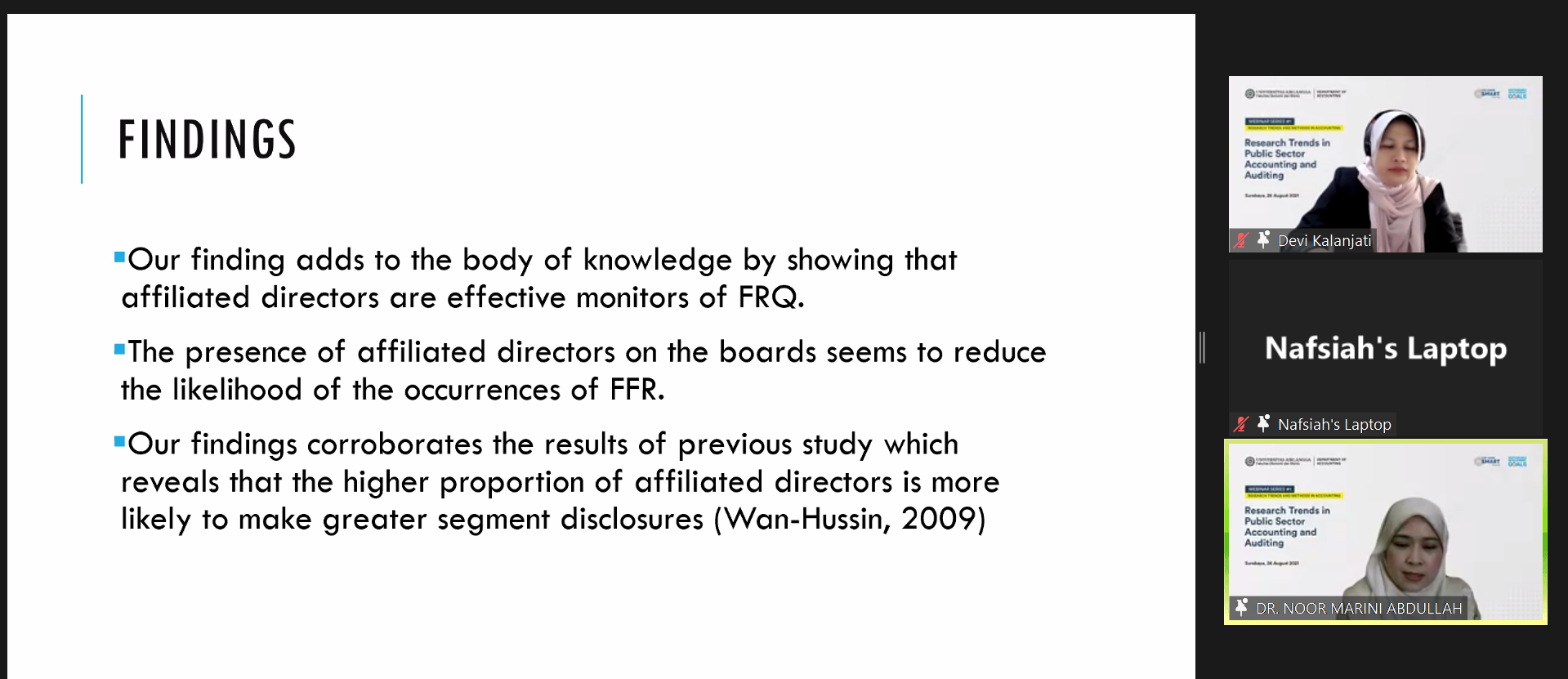On Thursday 26 August 2021, the Accounting Department held Webinar Series #1 with the theme "Research Trends in Public Sector Accounting and Auditing" with speaker Prof. Nafsiah Mohamed and Dr. Noor Marini Hj Abdullah from Universiti Teknologi MARA Malaysia moderated by Dr. Devi S. Kalanjati, Lecturer in Accounting, Universitas Airlangga. This webinar was attended by around 200 participants from students and practitioners.


Prof. Nafsiah Mohamed discusses the latest public sector accounting research themes and future theme trends. Prof. Nafsiah stated that the current theme is more about forms of accounting, monetary measurement and more about numbers. Meanwhile, regarding future trends, Prof. Nafsiah said that the themes of the digital world, financial criminology and the Covid-19 pandemic would be discussed a lot in the future. For example, for the digital world , Prof. Nafsiah discusses how currently the government is spending the budget on technology, we need to know who is monitoring the use of the budget and knowing whether the public is getting the benefits they should get. He also emphasized that both directly and indirectly, research in the public sector needs to address financial and non-financial aspects, and answer "why" and "how"; why a case occurs and how research results can provide input for regulations. Prof. Nafsiah also underlined that the future trend is not only to focus on facts and figures, we need to discuss whether the public sector is serving the community well ( citizen oriented ).

Meanwhile Dr. Marini presented the results of her research entitled "Non-audit services, audit opinion, culture, affiliated directors and fraudulent financial reporting: Evidence from Malaysia". This study examines four factors associated with fraudulent financial reporting (FFR) in Malaysian public companies (PLCs). This research suspects that non-audit services (NAS) provided by auditors, audit opinions, composition of bumiputra directors on the board and affiliated directors are related to FFR. The sample studied consisted of 41 companies that were subject to criminal sanctions for securities fraud and 41 companies that were not affected by fraud cases, all of which were listed on Bursa Malaysia and had a complete set of financial reporting data from 1999-2009. The results of the study reveal that audit services and NAS provided together are significantly positively related to FFR. With regard to audit opinions, companies that received other than an unqualified audit opinion (WTP) before the year of fraud have a positive relationship with FFR. This research also reveals that the proportion of affiliated directors on the board has a significant negative relationship with FFR. However, this research also shows a significant positive relationship between the composition of bumiputra directors on the board and FFR.
Watch this webinar again on our YouTube channel!
























